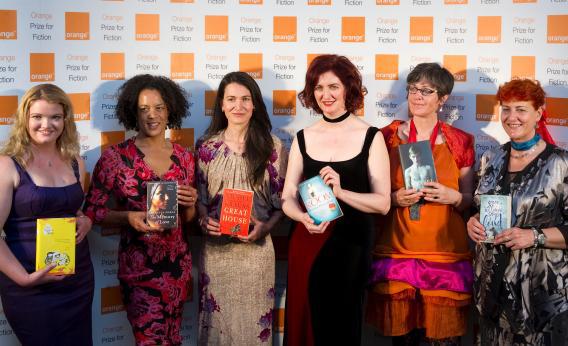Novelist Cynthia Ozick wrote a thoughtful op-ed in the New York Times this week lamenting the paradox of the Orange Prize, the British award that celebrates “excellence, originality, and accessibility in women’s writing.” On the one hand, literature has historically been the domain of men, who have not looked kindly on women’s attempts at serious writing. (Ozick quotes poet Robert Southey’s patronizing letter to a young Charlotte Brontë—“Literature cannot be the business of a woman’s life, and it ought not to be”—and the 19th-century example is obviously dramatic, but she could have linked to a DoubleX piece from 2010 showing that books by women authors are still drastically underrepresented in the New York Times book pages.) On the other hand, “to argue for femaleness-as-culture is to condemn imaginative and intellectual freedom and to revert to the despised old anatomy-is-destiny,” Ozick writes. Complicating matters for Ozick is the unexpected exhilaration she felt upon being shortlisted for the Orange Prize in spite of her anti-segregationist leanings.
Over at Jezebel, Lindy West takes a more forceful stance:
LET THE LADIES HAVE OUR FUCKING PRIZE. Women can be successful novelists, but we don’t win shit. And until we fix that, cultural institutions like the Orange Prize aren’t “ghettoizing” women, they’re bringing women INTO the fold of award-winning novelists. It’s inclusive, not exclusive.
I’m inclined to agree with West. The Orange Prize doesn’t argue for “femaleness-as-culture,” as Ozick writes, nor does it assume “a feminine subject matter,” as novelist A. S. Byatt once accused it of doing. It simply acknowledges that women are historically (and currently) underrepresented in the annals of “serious literature,” and that talented women’s novels are often not lauded nearly as loudly and effusively as talented men’s novels. It’s affirmative action: giving a leg up to a group that’s traditionally been discriminated against.
This point seemed so obvious to me (and to my colleague Katy Waldman, who wrote in an email, “What am I missing?”) until DoubleX managing editor Allison Benedikt suggested that there might be a generational divide at work. (Ozick and Byatt were born in the 1920s and 1930s; West, Waldman, and I were born in the 1980s.) And indeed, when you look at it this way, the controversy over the Orange Prize makes a lot of sense: For women who fought in the 1960s to sit at the same table as men, a women-only prize seems like a retreat. But for women who grew up facing subtler forms of sexism than their mothers and grandmothers, a prize that draws attention to and tries to remedy the gender gap in literary accolades feels like a good thing.
Just because second-wave feminists’ concerns seem rooted in an older paradigm doesn’t mean they aren’t valid, though. Like many women who write about feminist issues, I’m troubled by the inherent contradiction of women’s sites like Jezebel and DoubleX, which, like the Orange Prize, create a space for women’s work and feminist discussion but also isolate that space from the rest of the media. It seems to me that second-wave feminists shouldn’t question the intentions of such spaces—they’re inspired, after all, by the same concerns about inequality that sparked feminist activism in the 1960s. But if “the goal of feminism isn’t separation but integration,” as West writes, it’s worth asking how, exactly, we’re going to make the transition from the pink ghetto to the mainstream.
